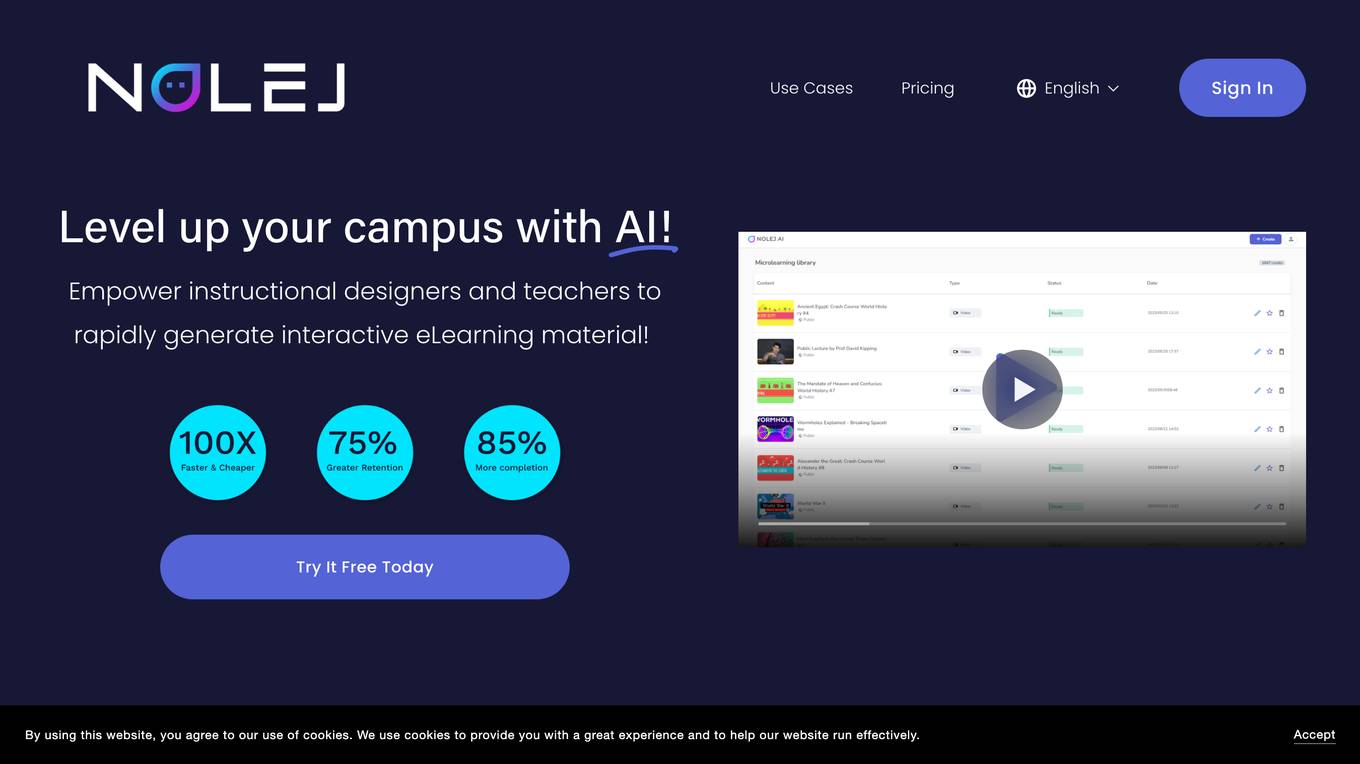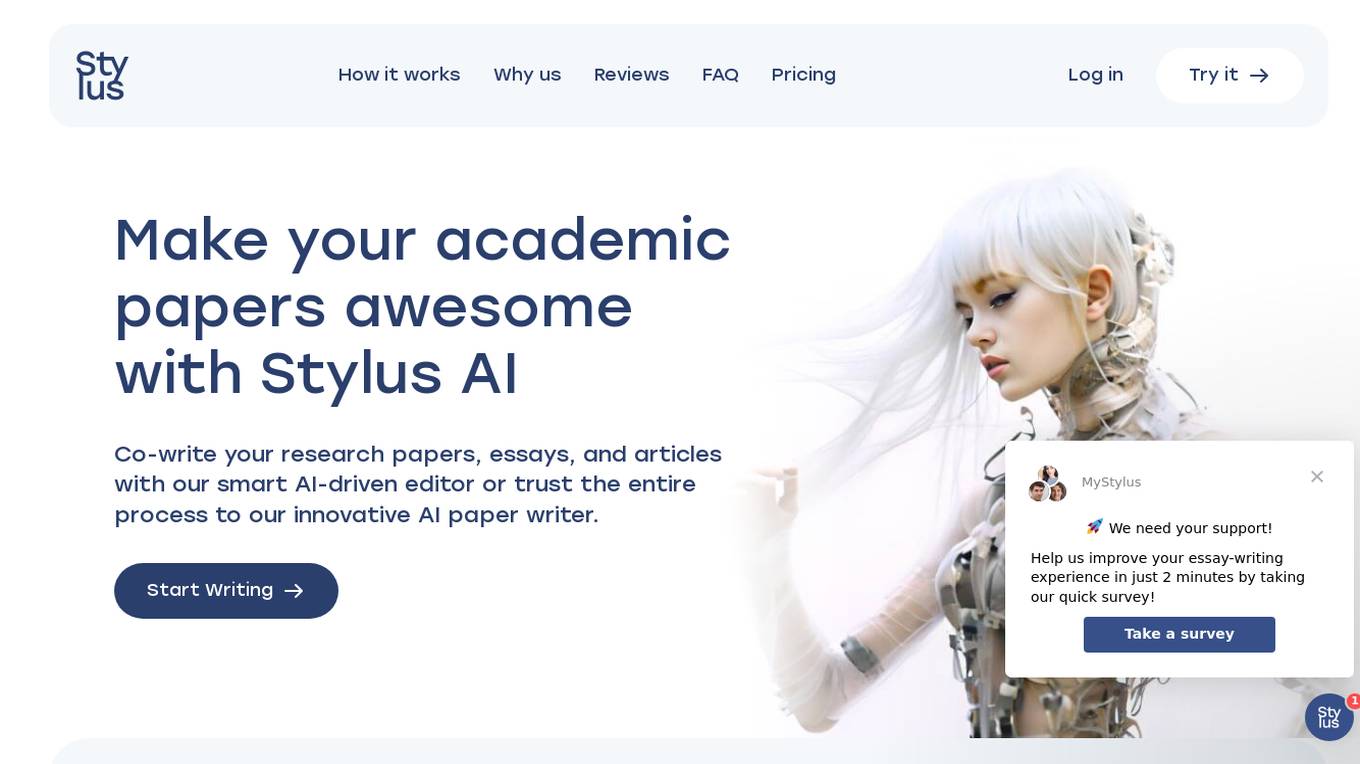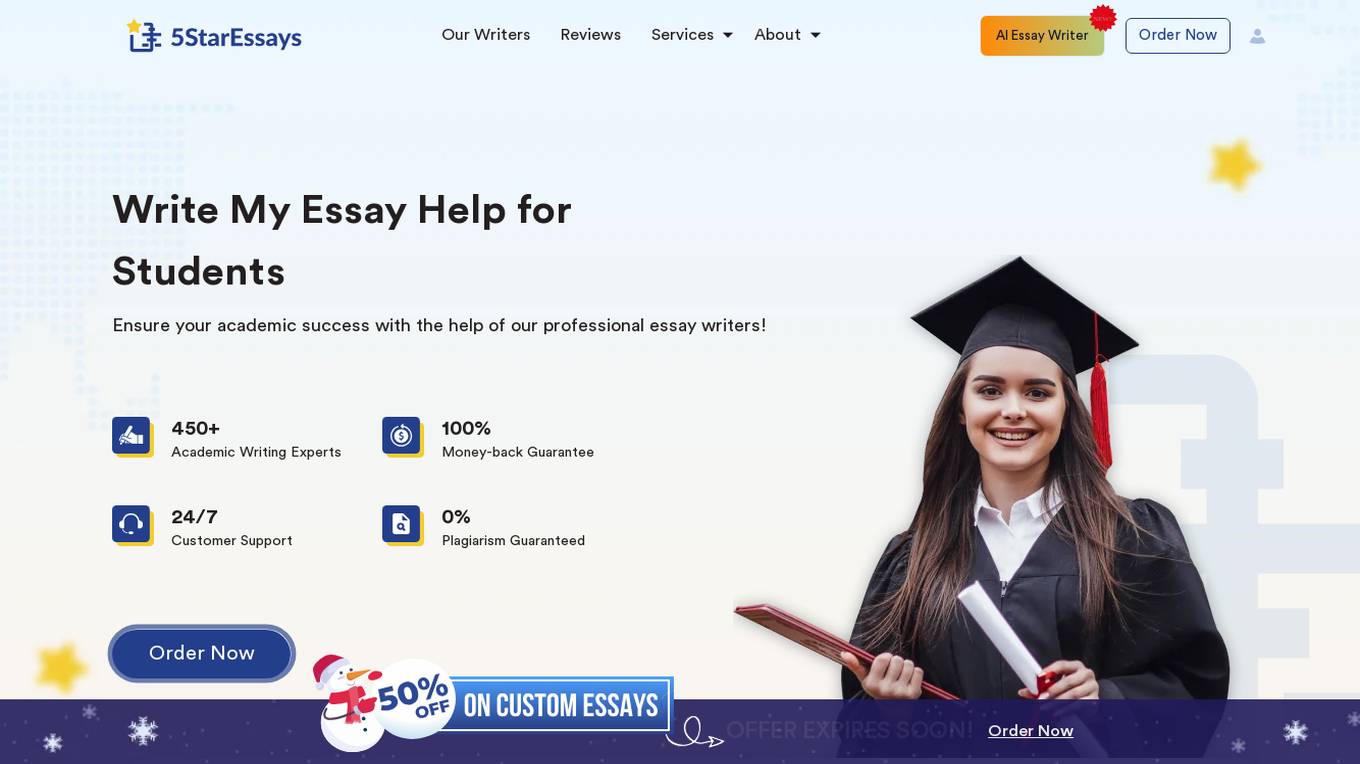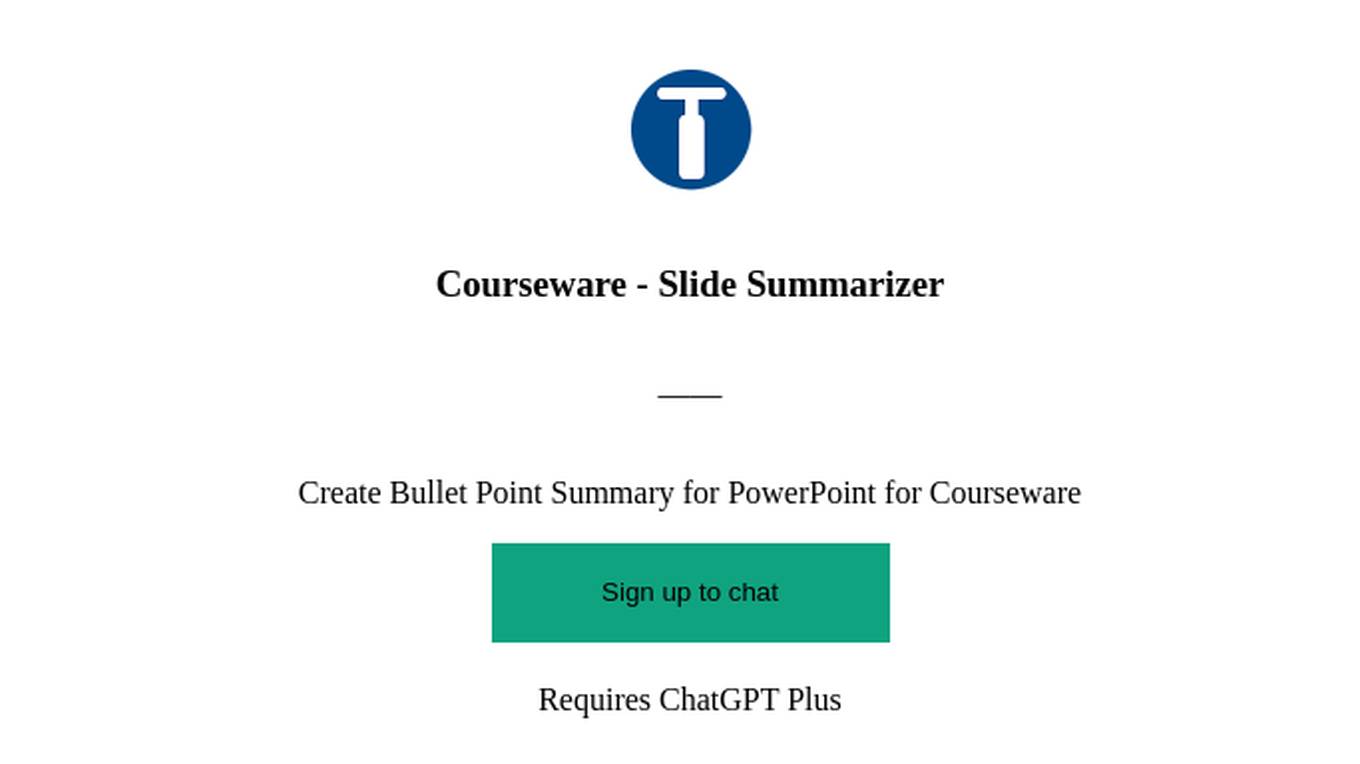Best AI tools for< Courseware Designer >
Infographic
3 - AI tool Sites

NOLEJ
NOLEJ is an AI-powered platform that helps instructional designers and teachers rapidly generate interactive eLearning material. It can automatically generate interactive content from existing learning materials, such as textbooks, videos, and online media resources. NOLEJ also offers a variety of interactive formats, including interactive videos, flashcards, glossaries, crosswords, drag-and-drop activities, find-the-word puzzles, and interactive books.

Stylus
Stylus is an AI-powered essay writing tool designed to assist students in creating academic papers. It offers features such as AI-driven editor, paper generator, and personal statement writer. Stylus provides comprehensive and well-structured writing, uses reliable sources, and ensures stylistic accuracy. The tool is multilingual, works on mobile devices, and guarantees original content without plagiarism. Users can benefit from the AI's ability to understand personal writing style and voice, making the writing process efficient and insightful.

5StarEssays
5StarEssays is an AI-powered essay writing service that offers professional academic writing assistance to students. The platform provides a wide range of services, including essay writing, assignment help, coursework writing, and more. With a team of native English writers and subject experts, 5StarEssays ensures high-quality, plagiarism-free content delivered on time at affordable prices. The platform also offers features like 24/7 customer support, free proofreading and revisions, easy online order tracking, and a 100% money-back guarantee. Students can benefit from the platform's reliable and custom writing services, with a focus on delivering premium quality academic papers to help them achieve academic success.

